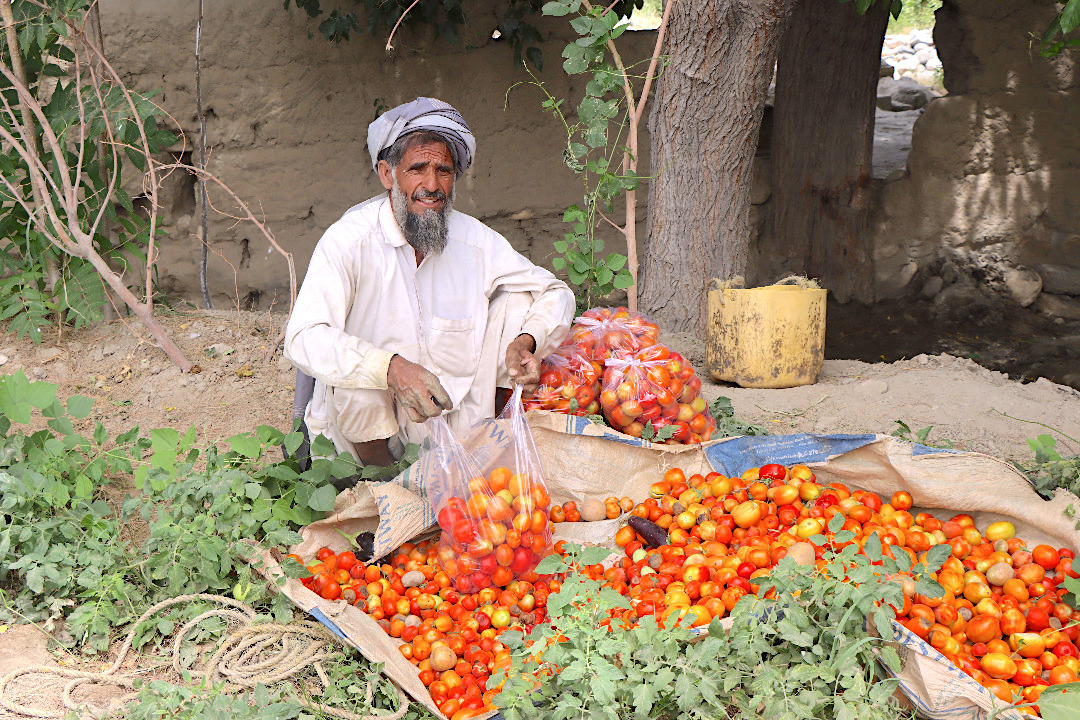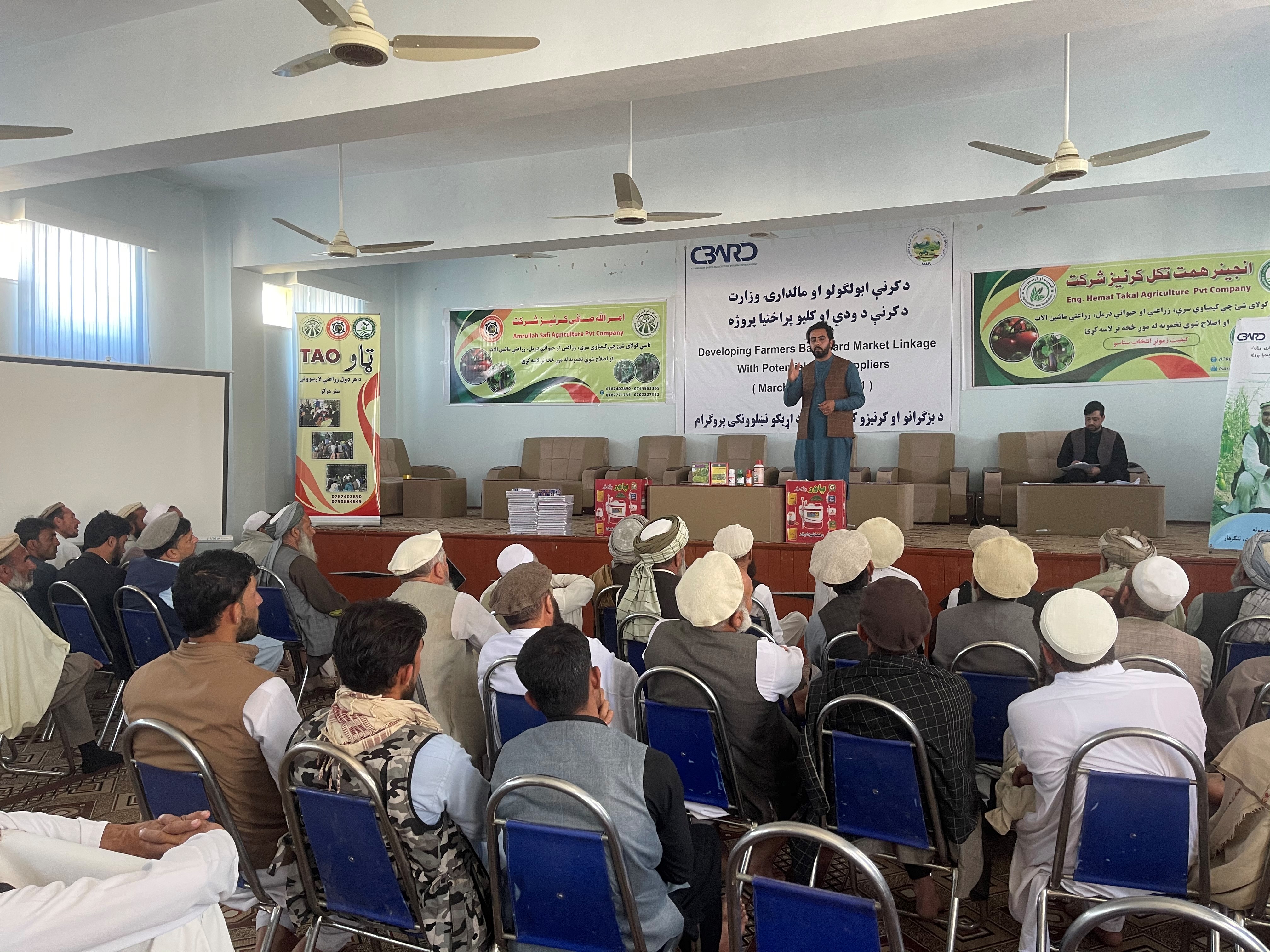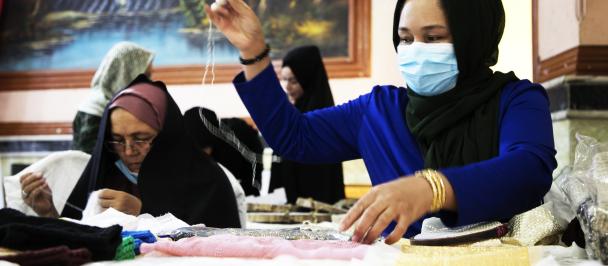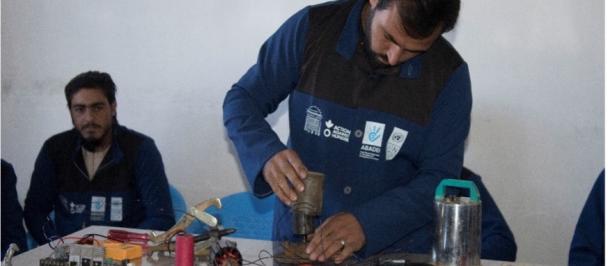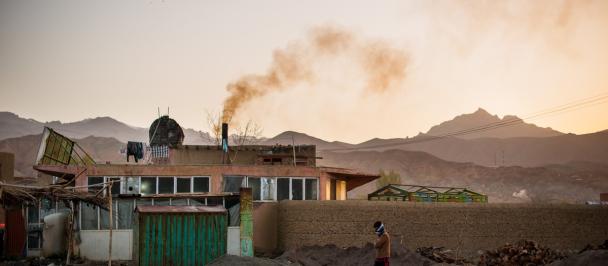A CBARD supported farmer in Chparhar district of Nangarhar province packages his harvest of tomato for the local market. Photo: UNDP-CBARD / 2021
In 2017, when the Community Based Agriculture and Rural Development (CBARD) project started its activities in Badghis, Farah and Nangarhar provinces, most of the intended beneficiaries – the opium poppy farmers – knew only about their local village markets as the place to go for buying seeds/agrochemicals and selling their produce. More than three years since then, CBARD has installed hundreds of commercial and micro-greenhouses both for male and female farmers in these provinces, where the former poppy growers are now cultivating a variety of vegetables.
In most cases farmers cultivate the greenhouse twice and even thrice a year and the harvest go in to several tons each time. As the produce is abundant and much more than can be sold in local markets, CBARD’s Business and Value Chain Development team helps the farmers find suitable markets for their vegetables.
However, for the end product to be high quality, the inputs need to be high quality too. Greenhouse owners need quality inputs like vegetable seeds, fertilizers, pesticides, weedicides, and irrigation equipment to make sure their crops yield expected outputs and quality yield. From time to time, the project organizes networking and linkage sessions between the farmers and well-known input suppliers at both district and provincial level, in order to ensure the farmers have access to high quality inputs.
Recently, the Business Development and Value Chain Management representatives from CBARD’s headquarters organized a series of networking sessions for 75 commercial greenhouse owners from Khak-e-Safid and Posht-e-Rod districts in Farah province. They were introduced to business owners from Farah city who can supply high quality input materials like seeds, fertilizers, pesticides as well as weeding and pruning equipment. As a result, a total of 106 MoUs were signed between the farmers and suppliers.
After participating in the workshop, Burhanuddin, a greenhouse owner from Posht-e-Rod said “The event on market linkage was very useful. We have been using different seeds and agrochemicals in the greenhouses with mixed results. Now we can be sure that we will have a good harvest and income in each season”.
In a similar activity earlier this year, CBARD’s Business Development and Value Chain experts visited different target districts in Nangarhar province, where they linked 164 greenhouse owners from six districts of the province with three potential input suppliers. Two sessions were organized in Rodat and Chaparhar districts while farmers from the remaining four districts participated in two sessions organized for them in the provincial capital, Jalalabad. The suppliers are available both in Jalalabad and at district levels.
Backward Market Linkage session organized by CBARD project in Jalalabad city. Photo: UNDP-CBARD / 2021
Greenhouse owners from Khak-e-Safid and Posht-e-Rod districts at the Backward Market Linkage session in Farah city. Photo: UNDP-CBARD / 2021
Tooryalai, a greenhouse owner from Chaparhar said “the trying and testing can be costly for us, because once we cultivate the seeds and find out that they were not good quality, its already late for that season and we lose a good portion of the expected profit for that season because of low quality inputs. CBARD’s linking us with trustworthy potential suppliers takes that worry away”
A total of 58 agreements were signed between the greenhouse owners and the input suppliers. These agreements will ensure the farmers will have access to high quality seeds, agrochemicals, pesticides and farming equipment, which will translate in to substantial harvest every season.
Both in Farah and Nangarhar, the businesses were selected after an extensive survey of the market and assessment of the products they sell.
Along with this, the project has planted more than 1,121 hectares of fruit orchards for more than 4,100 beneficiaries in the aforementioned provinces. The orchards produce many diverse fruits such as apples, pomegranates, grapes, sweet oranges, lemons, peaches, plums, pears, walnuts and persimmons.
The project also constructs cool storages for fruits and raisin houses for grape farmers, in addition to constructing and rebuilding irrigation and water management structures like canals, protection walls, water dividers, siphons, water intakes and the like. These structures have prevented loss of vital agricultural land to floods and water wastage, and transformed hundreds of hectares of land in target districts which were left barren due to absence of efficient water distribution systems and insufficient water for irrigation in to fertile land.

 Locations
Locations